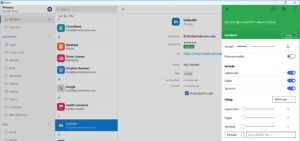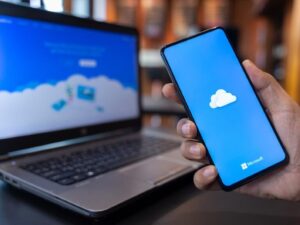Tips include incorporating identity verification into the hiring process and communicating the corporate culture.
There’s a new normal for the way we work and the way we conduct business, and that is extending to how people are being hired for jobs. Despite the pandemic and high unemployment rates, the interviewing and hiring process is still underway remotely.
“I do expect that hiring will begin to ramp up as the world starts to recover and emerges from the crisis, said Ken Schnee, a general manager at background screening company Sterling. With social distancing orders still in place, the safest way to ramp up hiring is to do so remotely, and it can still be done safely and efficiently, he said. It’s just as important to maintain a strong candidate experience during the remote hiring process.
SEE: Coronavirus: Critical IT policies and tools every business needs (TechRepublic Premium)
“Companies can still interview candidates just as seamlessly in a remote context, thanks to advanced technologies that are now at the forefront of the hiring process,” Schnee said. “The question becomes, how can we give a robust view of the applicant and drive efficiency in the hiring process, while ensuring that there is trust about their identity and background.”
Background checks can be efficient, quick, and easy to navigate for both employers and candidates by integrating verified candidate data into a streamlined workflow, thanks to video conferencing, he said.
“Prior to COVID-19 and the remote workforce, I had reservations about the effectiveness of video interviewing but had used it from time to time when traveling or unable to meet in the office,” Schnee said. “However, our shared experiences during this crisis have made us more adept at conducting video meetings and interviews, allowing us to pick up on those non-verbal cues that we look for during in-person interviews.”
Tips for hiring remotely
With the utilization of virtual interviews, companies should seek to streamline the hiring process among hiring managers, HR departments, and the candidate, he said. “From a candidate perspective, I believe that companies should emphasize a thoughtful interview process–one that allows hiring managers and coworkers to genuinely get to know the candidate. These interviews can be designed to demonstrate company culture as well as engage with teammates.”
SEE: How to prepare for a permanent remote workforce (TechRepublic)
Companies should take steps to build trust into the process, Schnee said. “Incorporate identity verification into the recruiting and interview process early on so that you truly know who you’re interviewing. And as you hone in on your selected candidate, run a thorough background check so that you feel secure about the person you’re introducing into your organization, and to your colleagues and customers.”
Between implementing these steps and utilizing the right technology and the right engagement strategy, virtual hiring can be as effective as in-office hiring, Schnee said.
“In addition, hiring managers and HR professionals should have the ability to manage cases as well as launch adverse action and individual state law compliance notices, while ensuring data protection and privacy across the organization, Schnee said. “These efficiencies are crucial to remaining compliant and providing a good candidate experience, while helping employers make smart, informed hiring decisions on a foundation of trust and safety.”
Remote hiring challenges to watch out for
For some time, the HR industry has focused on creating an experience for users and candidates alike that utilizes both software-as-a-service (SAAS) and mobile-first. This focus has allowed companies to serve a mobile workforce and create a hiring process regardless of location, Schnee said.
“Through most applications, candidates can complete their entire onboarding process from a mobile phone, and users can access HR platforms via the internet from anywhere in the world. However, with all of these advanced technologies, complexities still arise in identity verification, workplace culture, and streamlining technology.”
SEE: Virtual hiring tips for job seekers and recruiters (free PDF) (TechRepublic)
One of the most considerable challenges in remote hiring is virtually portraying and communicating company culture, according to Schnee. Additionally, with a lack of face-to-face interactions, hiring managers could struggle to see if the applicant is a good fit culturally, he said. In most cases, the new hire will be interacting with other employees, customers, partners, and the community.
So when speaking to a candidate, the interviewer needs to clearly communicate brand values and how to achieve these values remotely, he advised. “You can ask yourself, can this candidate interact with teammates and establish thoughtful communications? Does your candidate believe in your mission and goals?”
From a candidate perspective, hiring in-person allows applicants to see how the company presents itself, allowing the culture to shine. Many candidates choose to work at a company for this reason. In a study by Glassdoor, 56% of respondents said that company culture is more important than salary for job satisfaction.
Hiring managers must find ways in the interview process to assimilate the applicant into the company culture. “You can design the interview process to get virtual face time with the entire team,” Schnee suggested. “Managers can also invite the candidate to a virtual social event to see if there is a mutual cultural fit.”
Identity verification is extra important when hiring remote workers
In remote hiring, HR professionals need something to replace the comfort level that they would typically get with face-to-face interactions. “I have found that proper identity verifications and thorough background screenings are vital in hiring remotely,” he said. Identity verification is critical, and Sterling recommends doing this early in the process, Schnee said. A candidate can use their mobile phone and government-issued ID in conjunction with intelligent back-end artificial intelligence (AI) services to verify identity, he said.
“These technologies can help build trust into the process,” Schnee said, “while thorough background checks create a sense of security that you are choosing the right person to join your organization, interact with your employees and customers, and represent your brand.”
Also see

Image: Ivan-balvan, Getty Images/iStockphoto
Source of Article




